The Catholic Church is a cesspool
More than a decade and a half after the septic holding tank was overturned in Boston, the unfathomable noxious waste of sexual abuse by Catholic priests in this country is still seeping out in fetid drips

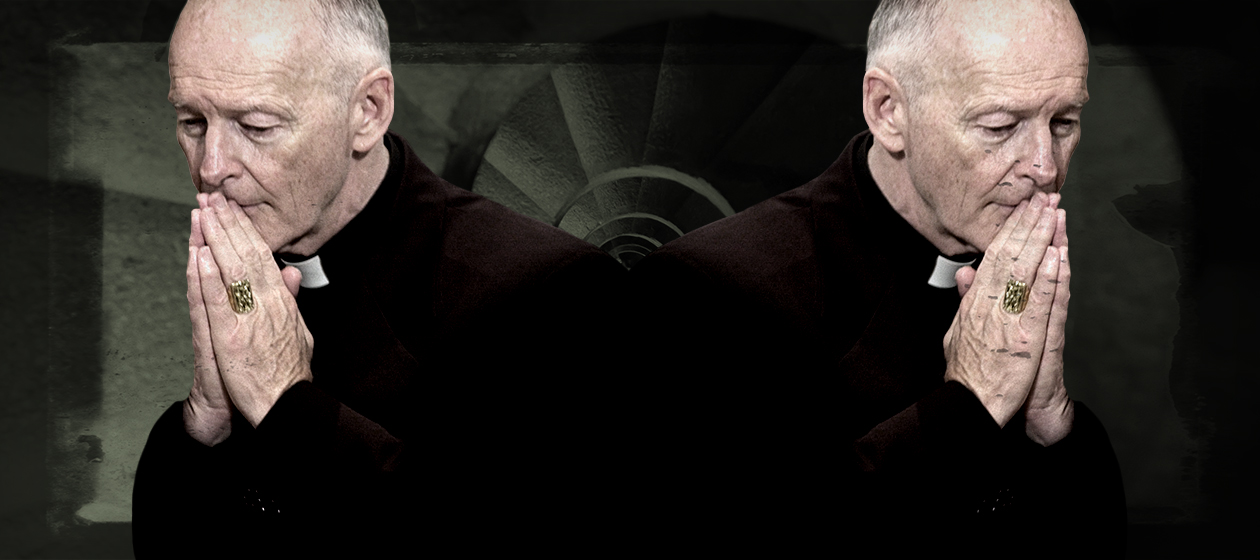
A free daily email with the biggest news stories of the day – and the best features from TheWeek.com
You are now subscribed
Your newsletter sign-up was successful
More than a decade and a half after the septic holding tank was overturned in Boston, the unfathomable noxious waste of sexual abuse by Catholic priests in this country is still seeping out in fetid drips.
As a Catholic, I believe that the Church was founded by the apostle St. Peter at the behest of Christ Himself. I also believe that it was for many years and will for many more still remain a cesspool.
A month ago, Theodore Cardinal McCarrick, the former archbishop of Washington, D.C., was removed from public ministry after credible allegations were made that he had abused a 16-year-old altar boy in 1971. Almost immediately after the announcement was made, it was revealed that at least two settlements had been made with victims — both of them adults at the time of the assaults — of McCarrick in the last decade. Now The New York Times reports that McCarrick began molesting a boy identified only as "James" when the latter was 11. This was a boy whom the future cardinal had himself baptized only two weeks after his ordination to the sacrificing priesthood. The abuse continued for 20 years. McCarrick allegedly referred to James as his "special boy" and insisted that the child and his siblings call him "Uncle Ted." When James tried to tell his parents about the things his "uncle" forced him to do, he was told that he must be lying. (Through a spokesperson, McCarrick declined to respond to the Times' request for comment. He has said elsewhere that he is cooperating with the Church's investigation of the allegations.)
The Week
Escape your echo chamber. Get the facts behind the news, plus analysis from multiple perspectives.

Sign up for The Week's Free Newsletters
From our morning news briefing to a weekly Good News Newsletter, get the best of The Week delivered directly to your inbox.
From our morning news briefing to a weekly Good News Newsletter, get the best of The Week delivered directly to your inbox.
James was not the only one of Uncle Ted's nephews. For decades it appears that McCarrick forced seminarians in his diocese to spend weekends with him at a beach house, where they were made to share his bed. There they were asked to rub his shoulders and to sit quietly while he groped their genitals. According to one file shared with the Times, McCarrick requested that a seminarian put on a striped sailor suit and a pair of shorts before joining him in bed. It was made clear to all of his victims that saying nothing was a necessary condition of their flourishing in his diocese and the wider Church.
These and many other details in the Times' reporting are emetic, and one wonders why the paper decided to kill a report on McCarrick for its weekend magazine several years ago. Could it be, as some commentators have suggested, because his victims were then believed all to have been adult men and that it was feared that reporting on such conduct could appear homophobic? What kept him safe for so many years? How was it possible that he obtained preferment from Rome even after concerned Catholics protested to other bishops, contacted the papal nuncio in Washington, and even flew to the Vatican at their own expense to make the authorities aware of his conduct?
McCarrick obviously should not have been elevated to the cardinalate in 2001. He should not have been made archbishop of Washington. He should not have been simply "removed from public ministry" a month ago, but defrocked. In the time of St. Pius V, a cleric found guilty by an ecclesiastical tribunal of McCarrick's crimes would have been publicly executed by the secular authorities.
That would have been fitting. Indeed, I cannot really aspire to some kind of quasi-journalistic neutrality here. I believe that anyone who abuses a child should be put to death, priest or layman, man or woman. I hate child abusers with a perfect hatred, one that rests uneasily in my heart with the imperative of forgiveness enjoined by Our Lord.
A free daily email with the biggest news stories of the day – and the best features from TheWeek.com
This is unfortunately no longer even a remote possibility in the United States, thanks to the Supreme Court's decision in Kennedy v. Louisiana. At the very least, however, McCarrick should be prosecuted aggressively to the furthest extent possible by the laws of the various states in which his alleged crimes were committed.
McCarrick's wickedness cannot be appreciated in isolation. It is one of thousands of cases of evil men betraying their vows and violating the most basic tenets of morality, aided and abetted by a vicious alliance of so-called conservatives who thought that the problem would take care of itself and who cared more about bad publicity than about the souls of the young and modernists who, in the wake of the Second Vatican Council, and its spirit of openness to the world, agreed with contemporary liberal psychiatrists that child rapists needed therapy and new surroundings rather than criminal sentences. This careerist nihilism and heresy were reinforced by the old-fashioned "Father knows best" prejudices of Catholics, especially in the urban ethnic enclaves of the United States.
The Catholic laity needs to wake up. The same brain-wormed clericalism that made the sexual assault of James possible must disappear — forever. A good start would be to stop responding to your annual bishop's appeal for money. If yours is a good pastor, put a suitable amount of your week's pay in the envelope on Sunday. But find other worthy causes within the Church — missionary work, women's religious life, charitable enterprises, priestly societies committed to traditional liturgical practice and devotion — rather than add to the grotesque hordes of the diocesan bureaucrats. More important: Demand that in every diocese throughout the world a full account is made available in every weekly bulletin in every parish giving precise and detailed information whenever an abuse settlement is made. The reports should name names of criminals and include both dates and amounts. And more important still: Insist that in the future there be no more settlements, at least not settlements that preempt the involvement of the criminal justice system while masking the identity of these wolves.
I think it should be admitted, too, that canonizing Pope John Paul II, under whom the abuse crisis unfolded, was a mistake. Do not misunderstand me. I have no doubt that he is in heaven. But when the Church tells us that someone is a saint she is not merely declaring that the individual in question died in a state of grace and now enjoys the beatific vision. She is offering the saint to the faithful as an exemplar of Christian virtue. Saints embody these virtues according to their stations in life. No one will look back at the papacy of John Paul II in 100 years and judge it favorably. The many failures of his pontificate were not entirely or perhaps even mostly his fault and I'm sure he tried as hard as he could; but the glorious roll of saints and martyrs is not a youth soccer league. His hasty canonization was a marketing triumph for the same wishy-washy conservatives who tried to insist simultaneously that there were no such things as monsters and that their shining Polish prince had slain them all. They were lying to themselves and to the rest of us. Once more I say: Never again.
None of this should be taken to suggest that the clergy is entirely given over to perverts and liars and hypocrites. There are many priests and at least one bishop I have known whom I love, to whom I owe my very soul. And the unyielding, George Smiley-like pursuit of abusers by good men in the hierarchy has made things much better.
But the damage has already been done. The faith of millions has been undermined and in far too many cases extinguished forever. The rest of us who persist somehow in the hope of Christ must pray not only for the victims but for their abusers. This is the hardest teaching of all.
Matthew Walther is a national correspondent at The Week. His work has also appeared in First Things, The Spectator of London, The Catholic Herald, National Review, and other publications. He is currently writing a biography of the Rev. Montague Summers. He is also a Robert Novak Journalism Fellow.
-
 How the FCC’s ‘equal time’ rule works
How the FCC’s ‘equal time’ rule worksIn the Spotlight The law is at the heart of the Colbert-CBS conflict
-
 What is the endgame in the DHS shutdown?
What is the endgame in the DHS shutdown?Today’s Big Question Democrats want to rein in ICE’s immigration crackdown
-
 ‘Poor time management isn’t just an inconvenience’
‘Poor time management isn’t just an inconvenience’Instant Opinion Opinion, comment and editorials of the day
-
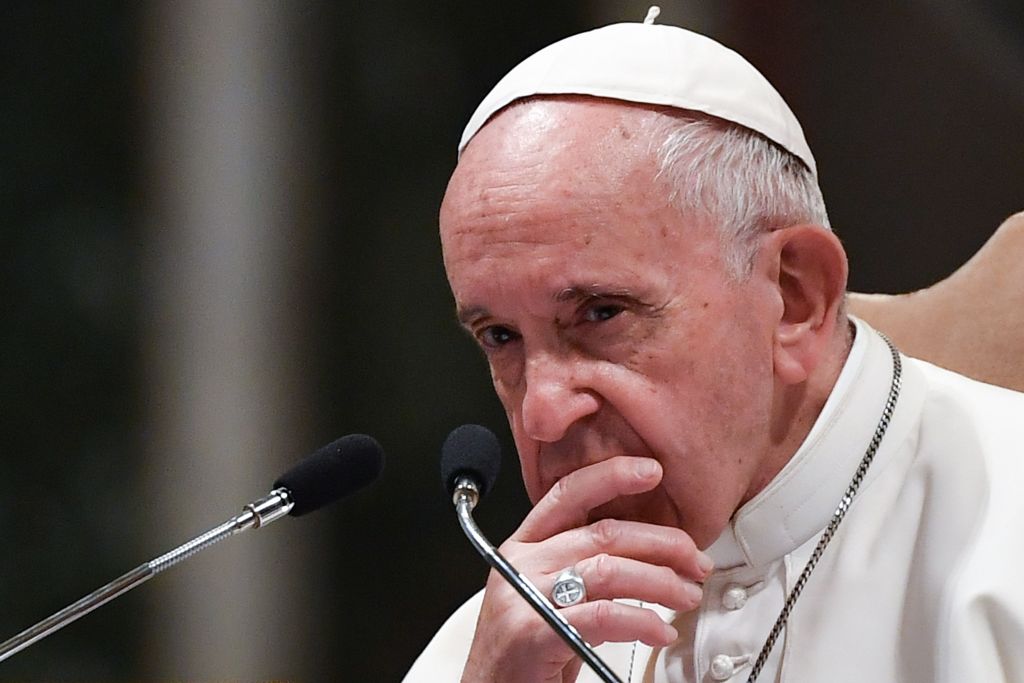 Pope Francis speaks about sex abuse scandals, Trump, and his conservatism
Pope Francis speaks about sex abuse scandals, Trump, and his conservatismSpeed Read
-
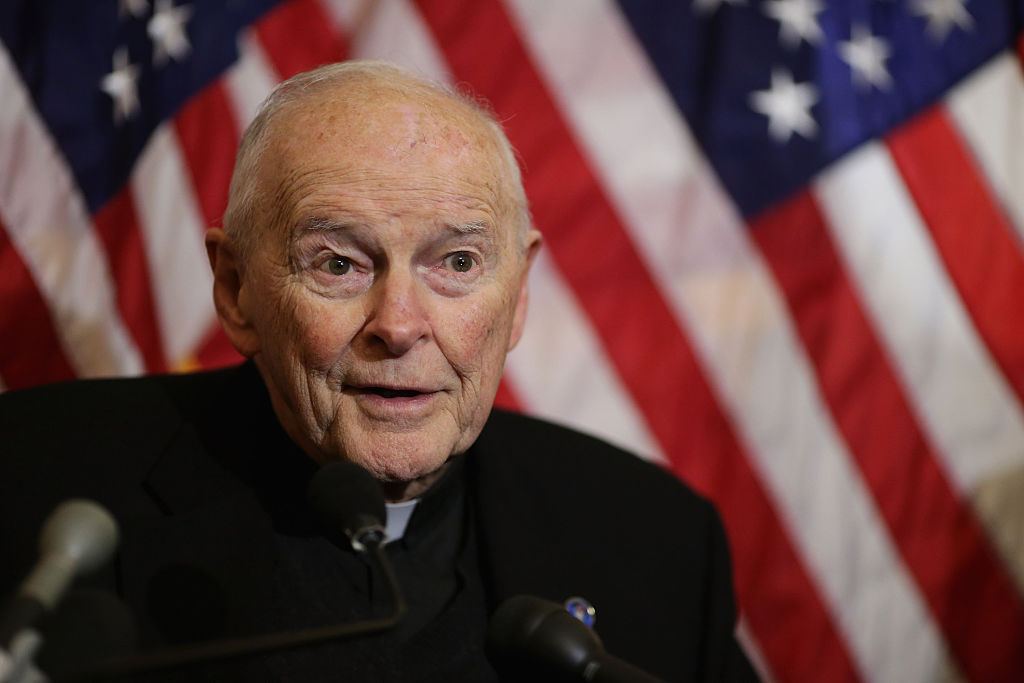 Pope Francis makes unprecedented decision in defrocking Theodore McCarrick
Pope Francis makes unprecedented decision in defrocking Theodore McCarrickSpeed Read
-
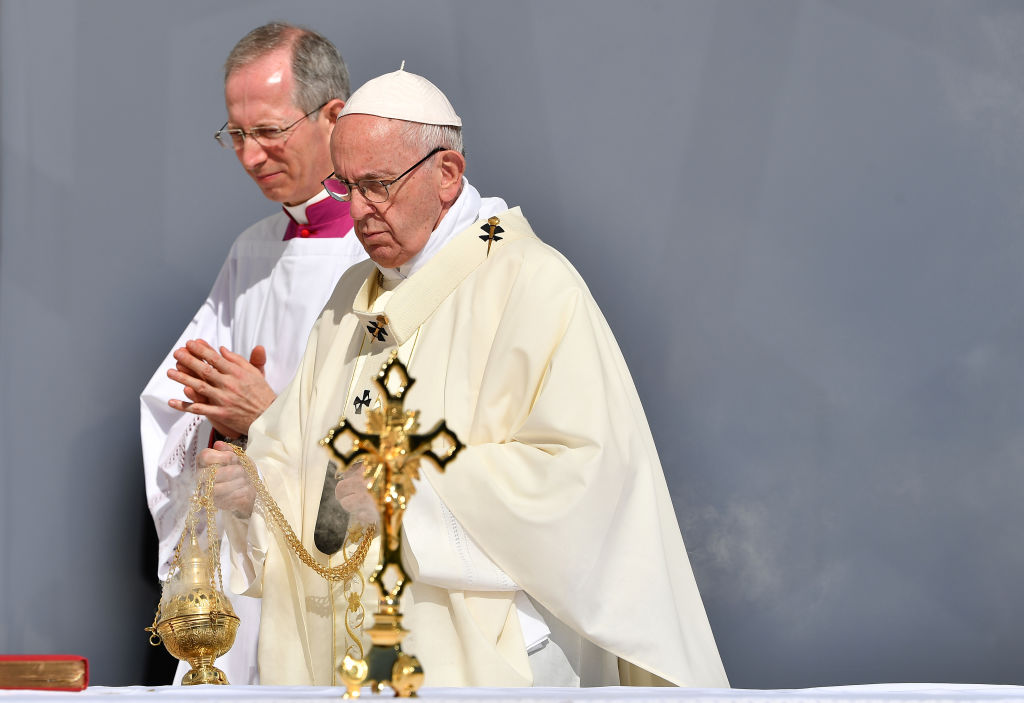 For the first time, Pope Francis publicly admits priests and bishops have sexually abused nuns
For the first time, Pope Francis publicly admits priests and bishops have sexually abused nunsSpeed Read
-
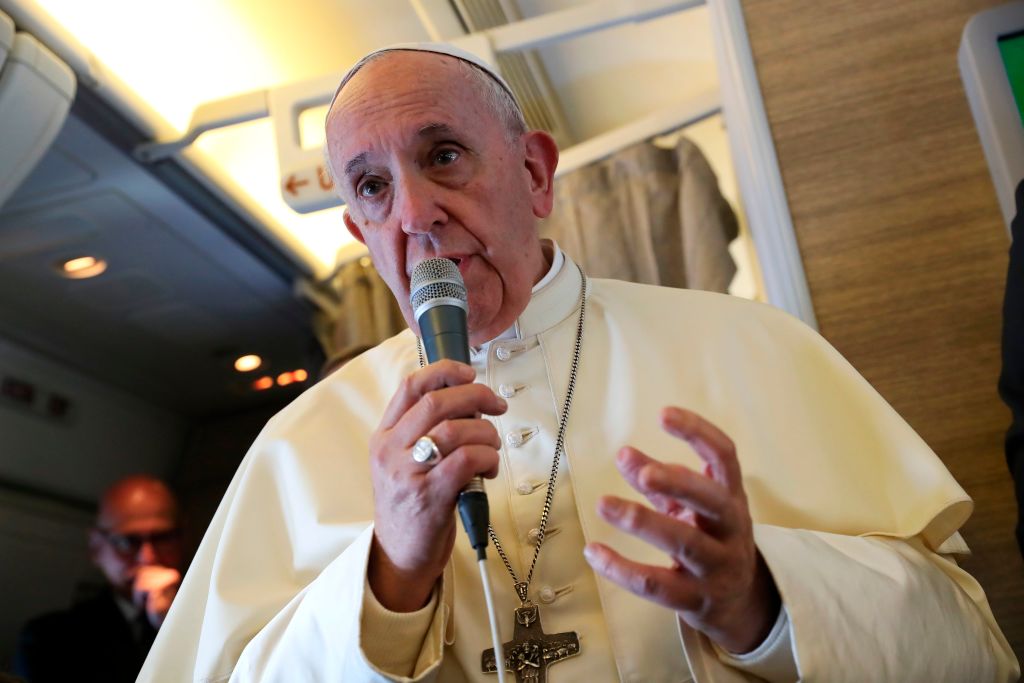 Pope Francis calls for peace in Yemen
Pope Francis calls for peace in YemenSpeed Read
-
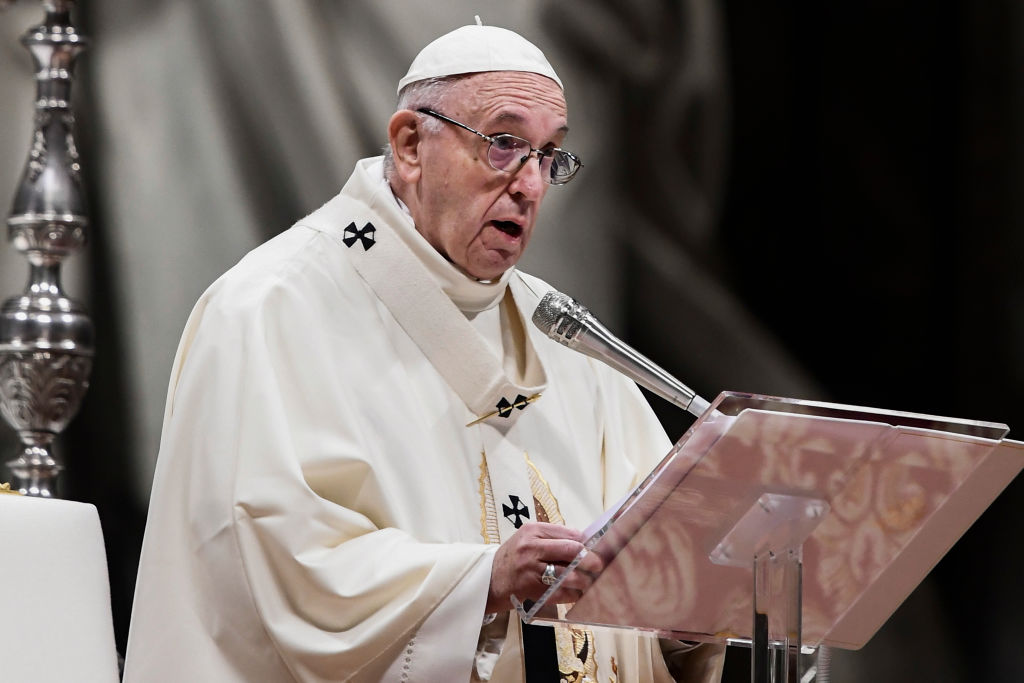 Pope Francis to abusive priests: 'Hand yourself over to human justice'
Pope Francis to abusive priests: 'Hand yourself over to human justice'Speed Read
-
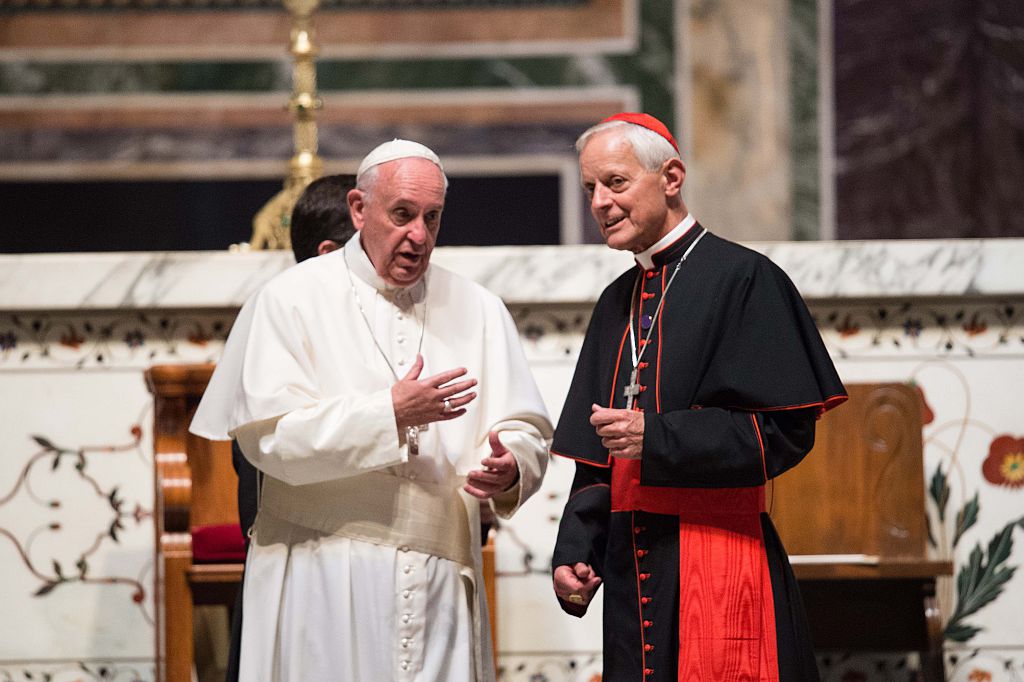 Pope Francis accepts resignation of embattled Washington Archbishop Donald Wuerl
Pope Francis accepts resignation of embattled Washington Archbishop Donald WuerlSpeed Read
-
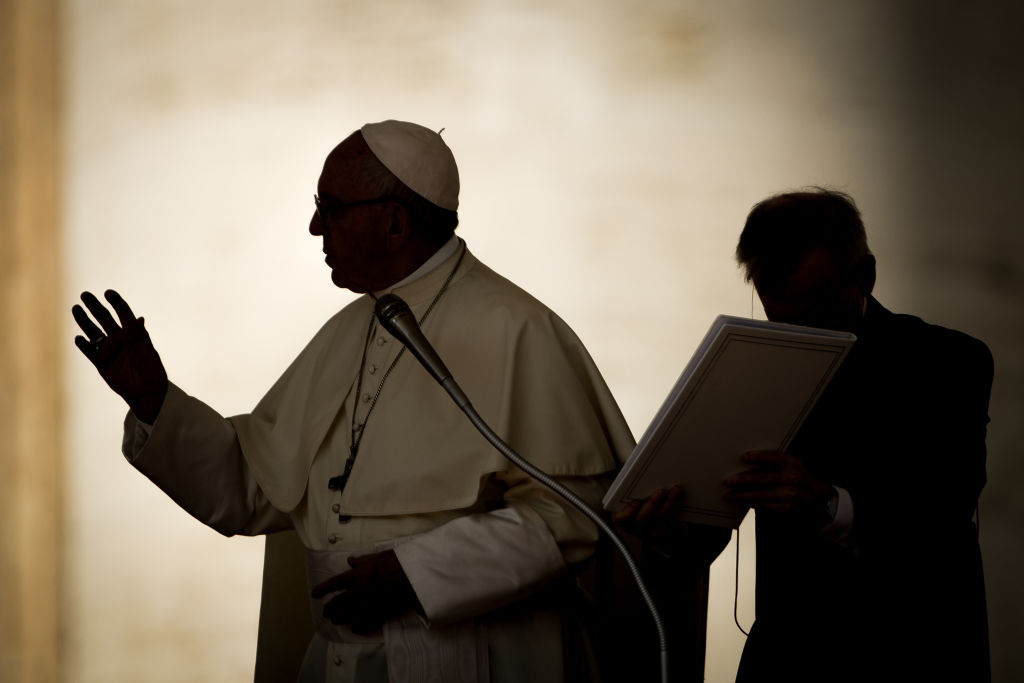 Pope Francis defrocks Chilean priest over sex abuse scandal
Pope Francis defrocks Chilean priest over sex abuse scandalSpeed Read
-
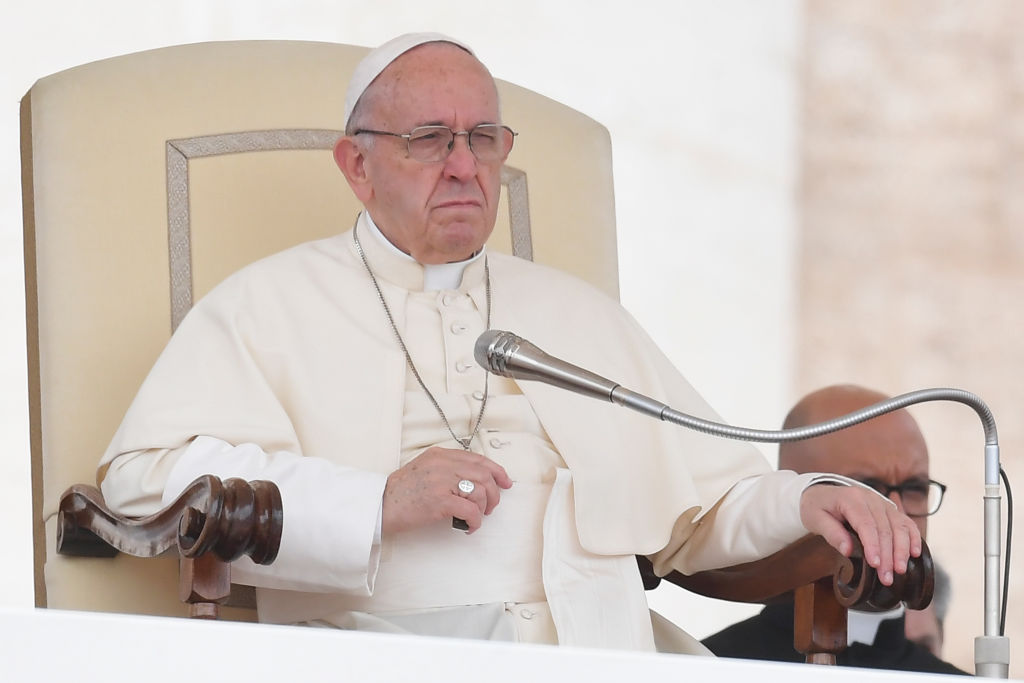 Pope Francis will meet with U.S. church leaders over clergy abuse
Pope Francis will meet with U.S. church leaders over clergy abuseSpeed Read
